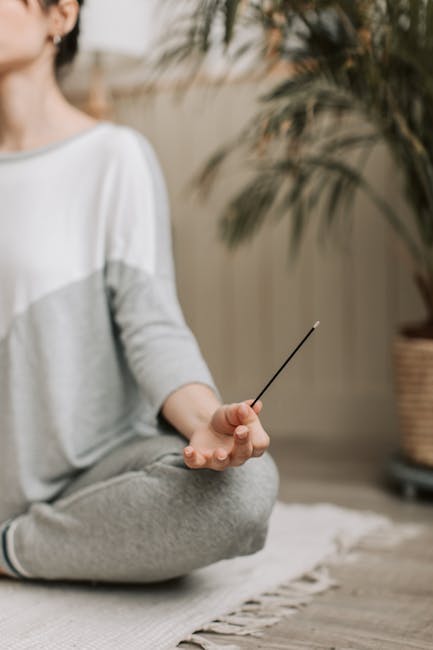Introduction
Journaling meditation is a powerful practice that combines the reflective nature of journaling with the calming effects of meditation. This practice involves writing down thoughts, feelings, and experiences as a form of meditation. It’s a unique way to deepen self-awareness, enhance mindfulness, and foster a sense of inner peace.
Journaling meditation is more than just writing in a diary. It’s a form of cognitive restructuring that helps you to process emotions, gain clarity, and understand your inner self better. By incorporating journaling into your meditation practice, you can create a deeper connection with your thoughts and emotions, leading to greater self-understanding and personal growth.
Whether you’re new to meditation or a seasoned practitioner, journaling meditation can add a new dimension to your practice. It’s a simple yet effective way to enhance your mindfulness, improve your mental wellness, and cultivate a deeper sense of self-awareness.
Benefits of Journaling Meditation
Journaling meditation offers numerous benefits, from enhanced self-awareness to stress reduction. It’s a powerful tool for self-reflection, allowing you to explore your thoughts and feelings in a safe, non-judgmental space. Here are some of the key benefits of journaling meditation:
| Benefits | Description |
|---|---|
| Enhanced Self-Awareness | Journaling meditation helps you become more aware of your thoughts, feelings, and experiences, leading to greater self-understanding and self-acceptance. |
| Stress Reduction | By providing a safe space to express and process emotions, journaling meditation can help reduce stress and anxiety. |
| Improved Problem-Solving Skills | Journaling meditation can enhance your problem-solving and decision-making skills by helping you gain clarity and perspective. |
Whether you’re looking to enhance your self-awareness, reduce stress, or improve your problem-solving skills, journaling meditation can be a valuable addition to your self-care routine.

Photo by Vlada Karpovich on Pexels
Getting Started with Journaling Meditation
Starting a journaling meditation practice is simple and requires minimal tools. Here are some steps to help you get started:
- Setting up a dedicated journaling space: Choose a quiet, comfortable space where you can journal without distractions. This could be a corner of your room, a peaceful outdoor spot, or even a cozy café.
- Choosing the right journaling tools: All you need is a notebook and a pen. Choose a notebook that resonates with you and a pen that you enjoy writing with. Some people prefer using a meditation diary specifically designed for journaling meditation.
- Establishing a regular journaling meditation routine: Consistency is key in journaling meditation. Try to set aside a specific time each day for your practice. It could be in the morning to set the tone for your day, or at night as a way to unwind and reflect on your day.
Remember, there’s no right or wrong way to do journaling meditation. The most important thing is to make it a regular part of your routine and to approach it with an open mind and heart.
Techniques for Journaling Meditation
There are various techniques you can use in your journaling meditation practice. Here are a few to get you started:
- Stream of consciousness writing: This involves writing down whatever comes to your mind without censoring or judging your thoughts. It’s a great way to tap into your subconscious and uncover hidden thoughts and feelings.
- Prompts and guided journaling exercises: If you’re unsure what to write about, prompts can be a great starting point. They can help guide your writing and spark introspection. You can find a variety of journaling prompts online, or you can use a guided journaling app.
- Reflective writing and gratitude journaling: Reflective journaling involves writing about your experiences, thoughts, and feelings in a reflective manner. Gratitude journaling, on the other hand, involves writing about things you’re grateful for. Both of these techniques can enhance mindfulness and positivity.
Experiment with different techniques to find what works best for you. Remember, the goal of journaling meditation is not to produce perfect writing, but to explore your inner world and enhance your mindfulness.
Photo by Conscious Design on Unsplash
Tips for Deepening Your Journaling Meditation Practice
As with any practice, there are ways to deepen your journaling meditation experience. Here are some tips:
- Cultivating mindfulness and presence while journaling: Try to stay present while journaling. Focus on the act of writing, the movement of your pen, and the words appearing on the page. This can enhance your mindfulness and make your journaling meditation practice more effective.
- Experimenting with different journaling styles and formats: Don’t be afraid to try different journaling techniques, styles, and formats. This can keep your practice fresh and exciting. You might want to try one type of journaling for a while, then switch to another to see what resonates with you.
- Using journaling as a tool for personal growth and transformation: Journaling meditation is a powerful tool for personal growth. Use it to explore your thoughts and feelings, set goals, and track your progress. It can be a catalyst for positive change in your life.
Remember, the goal of journaling meditation is not perfection, but self-discovery and self-improvement. Be patient with yourself and enjoy the journey.
Conclusion
Journaling meditation is a powerful practice that can enhance your self-awareness, reduce stress, and improve your problem-solving skills. By incorporating journaling into your meditation practice, you can deepen your mindfulness, foster self-understanding, and cultivate inner peace.
Whether you’re new to meditation or a seasoned practitioner, journaling meditation can add a new dimension to your practice. So why not give it a try? Pick up a pen, open your notebook, and start exploring your inner world through the power of words. You might be surprised at what you discover.
Remember, the journey of self-discovery through journaling meditation is a personal one. There’s no right or wrong way to do it. The most important thing is to approach it with an open mind and heart, and to make it a regular part of your self-care routine. Happy journaling!
Tags: #Journaling, #Meditation, #Mindfulness, #SelfReflection, #SelfCare





